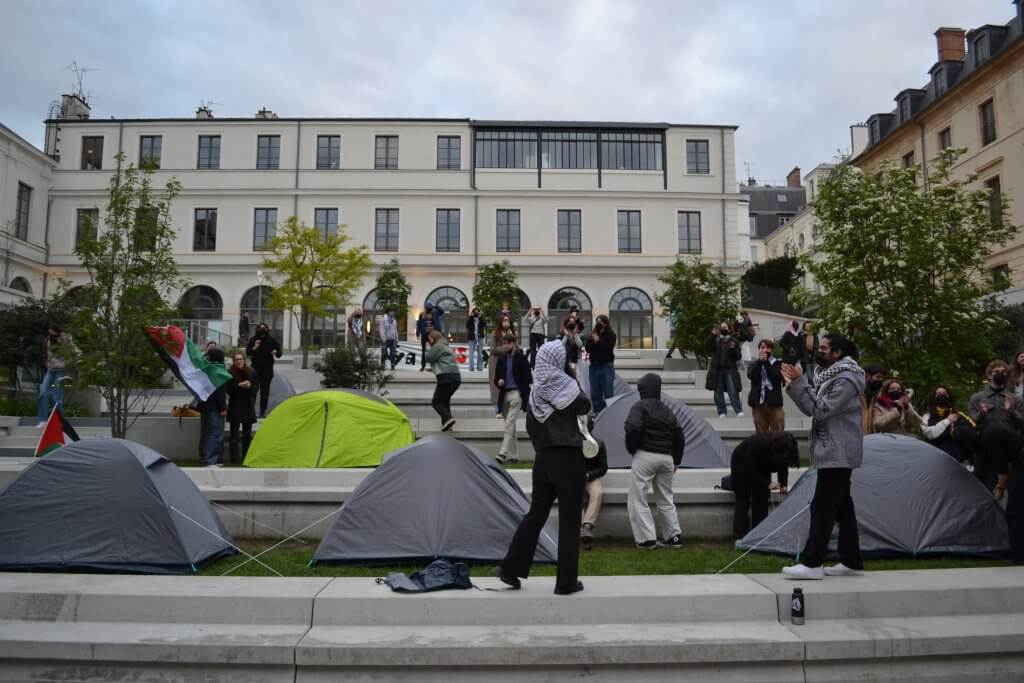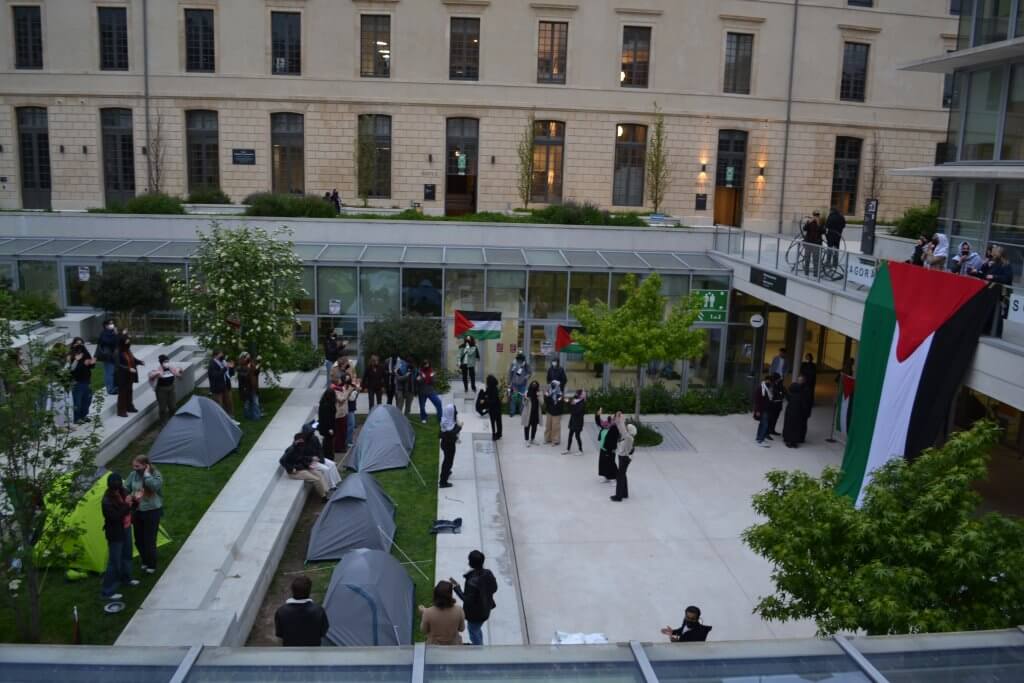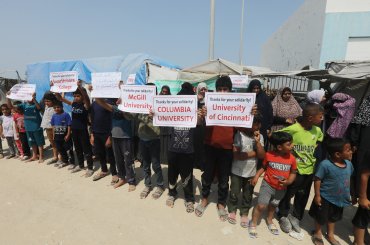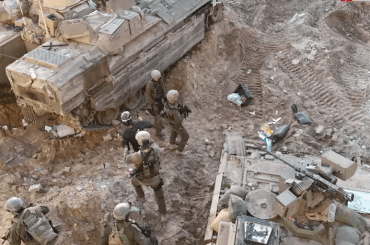It is 7:00 p.m. on April 24 at Sciences Po Paris, one of the most prestigious Political Science universities in the world. As the sun is setting on the French capital, one hundred students are holding a town hall assembly to vote on the commencement of an encampment on their university campus.
After the participants overwhelmingly voted in favor of the action, some started chanting, “Sciences Po, Sciences Po, you can’t hide, you are supporting genocide,” while other students rushed to set up tents in the courtyard of the building. It became thus official: the first university encampment for Palestine in France had just begun.
According to the QS world university ranking of 2024, Sciences Po Paris is the best Political Science university in Europe and the second best in the world. In France, many politicians and public figures have graduated from the school, considered by many as one of the most prestigious and elitist ones in the country. Sciences Po is also home to a large international community, with more than 50% of its students coming from overseas.
On March 12, the university had already seen its most emblematic amphitheater of the campus occupied by one hundred fifty participants, who had renamed it “Amphitheater Gaza”. The action caused a massive outcry in the country, with a heavy crackdown on the students following the mobilization. French Prime Minister Gabriel Attal announced that his government would ask the judiciary to open an investigation, while Sciences Po Paris followed suit and referred the case to the prosecutor.
This encampment comes thus after months of preexisting mobilization in the university, with regular sit-ins, occupations, and protests organized inside and in front of the campuses. While inspired by the encampments that have been flourishing for weeks in the United States, the students insist that they want to center Palestine, not only supporting the other university encampments that are happening worldwide.
‘Simple demands’
After almost seven months in Israel’s war on Gaza, in which at least 34,000 Palestinians have been killed by the Israeli army, students are mobilizing to “protest the administration’s inaction on the current genocide that is been unfolding in Gaza,” explained Richard, a 22-year-old student from Ireland.
“We have simple demands: cutting ties with Israeli universities that are complicit in the genocide happening in Gaza, the end of disciplinary sanctions against Palestinian rights’ advocates on campus, and a townhall to address students’ concerns as we are feeling we are not listened to,” he explained to Mondoweiss.
For Lara, a French student at the university, Sciences Po is operating a “double standard” in the way it is treating Israel’s war on Gaza. “We want the administration to talk about Palestine the way it did when Russia invaded Ukraine and to denounce what is happening in Gaza right now”, said the 21-year-old working on her bachelor’s degree.
An opinion shared by Juliano, a second-year master’s student in International Relations. “I believe that Sciences Po should do what it has done in every other case in which international law has been breached. It should speak up, call it out, and take measures as a consequence of it.”
“Right now we have four partnerships with Israeli universities. The way Sciences Po has canceled all its partnerships with Russia after the invasion of Ukraine, we ask that at the very least that Sciences Po investigates the claims that have been made about the complicity of those universities in the current genocide in Gaza,” emphasized Juliano, who is originally from Italy.
All around them, the students are cheering and dancing, as a food buffet has just been set up to feed the protesters. A DJ is also playing music to keep the activists awake. But the encampment was about to come to an end earlier than expected, as the students of the school are facing an ultimatum from the president of Sciences Po, Jean Bassères: either they leave, or they will be forced to evacuate by French police.

Police crackdown
It was almost one in the morning when the riot police officers entered the campus, one after the other, in a long procession and show of force and intimidation. The scene is historical: in recent decades, the police had never been seen inside the university.
As some students had already decided to leave due to fear of arrest, at least one-third of them chose to stay. They were escorted out by police officers, some of whom had to carry them by their legs and arms because they refused to leave voluntarily.
A few among them have reported to have been slightly injured during the evacuation, with bruises on different parts of the body, while others had their names recorded by the security forces. No arrests were made.
In an email sent to all university members, the president of the school stated that “Faced with the risk of an encampment lasting several days, thereby disrupting our teaching and research activities, I decided around midnight to ask the police to evacuate the site, as I had announced to the students if the dialogue failed. The evacuation was carried out without any clashes or violence.”
The police intervention caused a massive outcry among the student community, who was even more numerous on Thursday, while a peaceful sit-in was taking place the whole day. At night, around sixty students refused to leave, and spent the night there, with no police intervention this time.
While many are talking about a “red line” that has been crossed by the university’s administration, students say they are more determined than ever to make their demands heard. And as the end of the academic year approaches, there is no doubt their struggle will pass on to the next generation of students.


